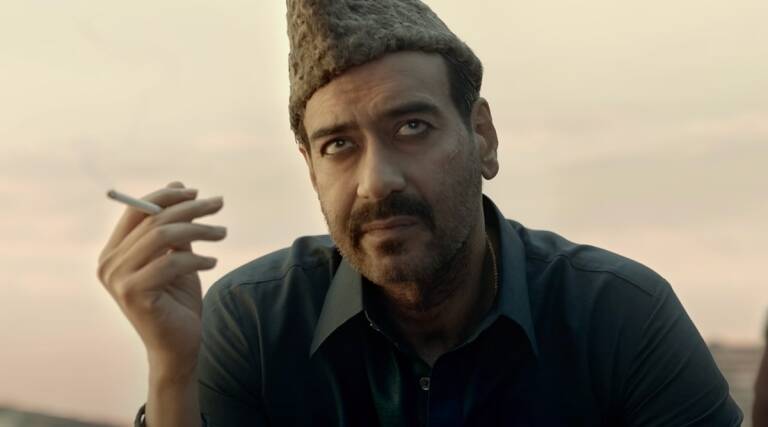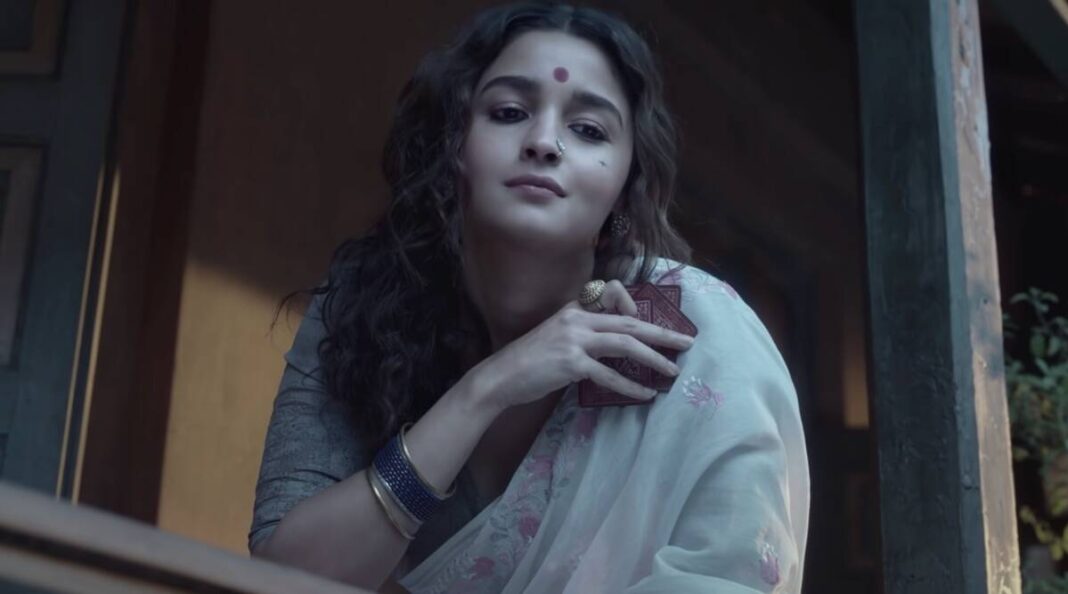Alia Bhatt starrer Gangubai Kathiawadi is based on the chapter titled ‘The Matriarch of Kamathipura’ from Hussain Zaidi’s book Mafia Queens of Mumbai. The Sanjay Leela Bhansali film releases in theatres on February 25.
Sanjay Leela Bhansali’s upcoming Hindi film Gangubai Kathiawadi, starring Alia Bhatt, is based on a chapter of Hussain Zaidi’s book Mafia Queens of Mumbai and while a lot of controversial claims have cropped up in the recent days about Gangubai’s representation on screen, not much is known about the woman.
In Zaidi’s book, the life of Ganga Harjeevandas Kathiawadi (her real name) is detailed in the chapter titled ‘The Matriarch of Kamathipura’. As per Zaidi’s account of Ganga, she was brought up in the Kathiawad village of Gujarat in a family of lawyers and educationists, and they had ties with the royal family of Kathiawad. Her family was quite strict, but they believed in encouraging their daughter to study, which was quite unusual in the 1940s. But Ganga wanted to be a film actor in Mumbai.
It was in her teenage years that Ganga fell in love with an accountant hired by her father. Named Ramnik Laal, the man claimed he had spent a few years in Mumbai, which fuelled Ganga’s attraction towards him. Love blossomed as Ramnik encouraged Ganga’s dreams of going to Mumbai and soon, the two decided to elope. Ganga packed up some cash and jewellery, married Ramnik in a small temple and the two were off to Mumbai.
The first few days were hunky-dory but they were running out of funds when Ramnik suggested that Ganga stay with his aunt for a couple of days so he can arrange for cheaper accommodation. Ganga agreed and landed in the red light area of Kamathipura where she learned that Ramnik had sold her off for Rs 500.

Ganga now found herself in a brothel and for the first few days, she starved and was beaten relentlessly. Ganga realised she could not go back to her family in Kathiawad as it would damage their reputation. When she thought about death, it seemed impossible because she was under constant watch. After two weeks, Ganga gave in to her brothel-keeper’s demands. She told herself that she had already been violated by the man who conned her, and she would never be healed. She adopted the name Gangu as she started working in the commercial sex trade business.
As per Zaidi’s account of Gangu, she was known in the area for her skills in her trade and this fame eventually forced her to have an encounter with a man named Shaukat Khan who raped and bruised her twice in a matter of weeks. The second incident left Gangu hospitalised for a few weeks and when she realised that no one could save her from the wrath of a brutal client, she went to see her rapist’s boss named Abdul Karim Khan aka Karim Lala.
Gangu approached him for help and after listening to her plea, he agreed to help her and also accepted her as a rakhi sister. The next time the man came to rape Gangu, she sent word for Karim Lala and was saved. This incident added to her reputation as Gangu now had the support of a man with underworld connections. She also found connections with the local police thanks to Karim Lala. Soon after, Gangubai Kathewali (merger of the words ‘kothewali’ and Kathiawadi), as she was now known, also won the gharwali elections. Gharwalis was the local term used for brothel-keepers; Zaidi explains that sex workers rise in stature if they win the election, and also command a certain number of sex workers.
Zaidi’s story begins with the tale of a girl named Madhu, who, much like Ganga, was brought to Kamathipura under false pretences. The story opens with the local brothel keeper calling Gangubai to talk to Madhu so she can get her in line. Instead, after talking to Madhu, Gangubai decides to let her go to her native place. The chapter narrates that this incident earned Gangubai a good reputation as it was seen that she valued women over money. However, the chapter also suggests that Gangubai would only allow newly recruited women to leave if she found their case to be genuine. If she did not approve, the woman would be barred from leaving the red light district. She also came to be known as Ganguma. Soon after, she also won bade-gharwali elections (the superior to many gharwalis of the area), which got her more power.
Gangubai was vocal about legalisation of prostitution in cities. At a women’s conference in Azad Maidan that saw women from various NGOs and political parties, Gangubai made her case for sex workers. Here, she was introduced as the ‘president of Kamathipura’. ‘I am a gharwali (brothel madam), and not a ghar todne wali (home wrecker),’, she apparently said, as quoted by Zaidi.






